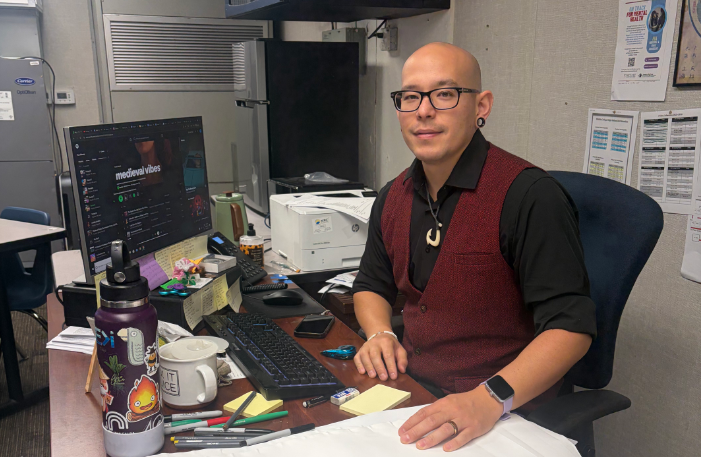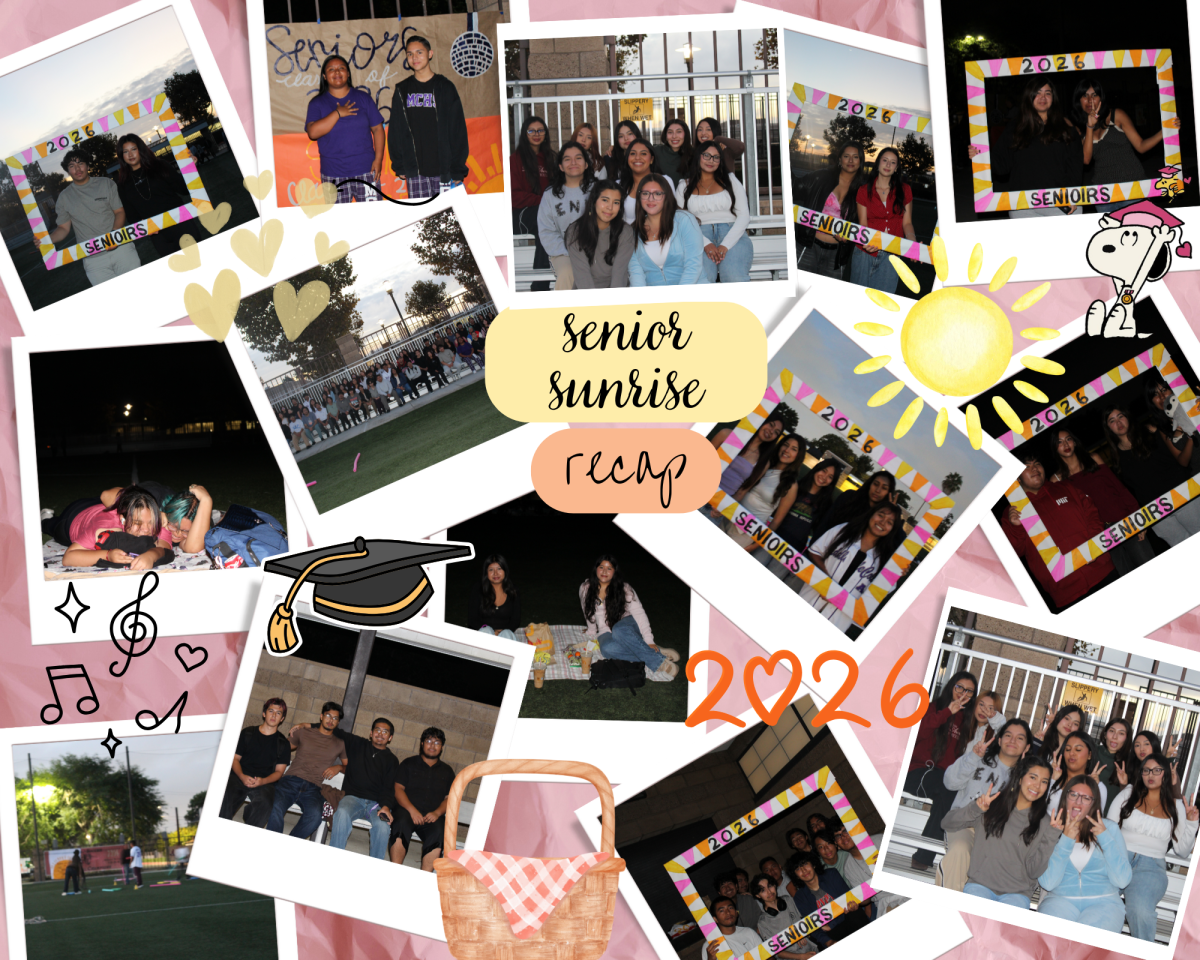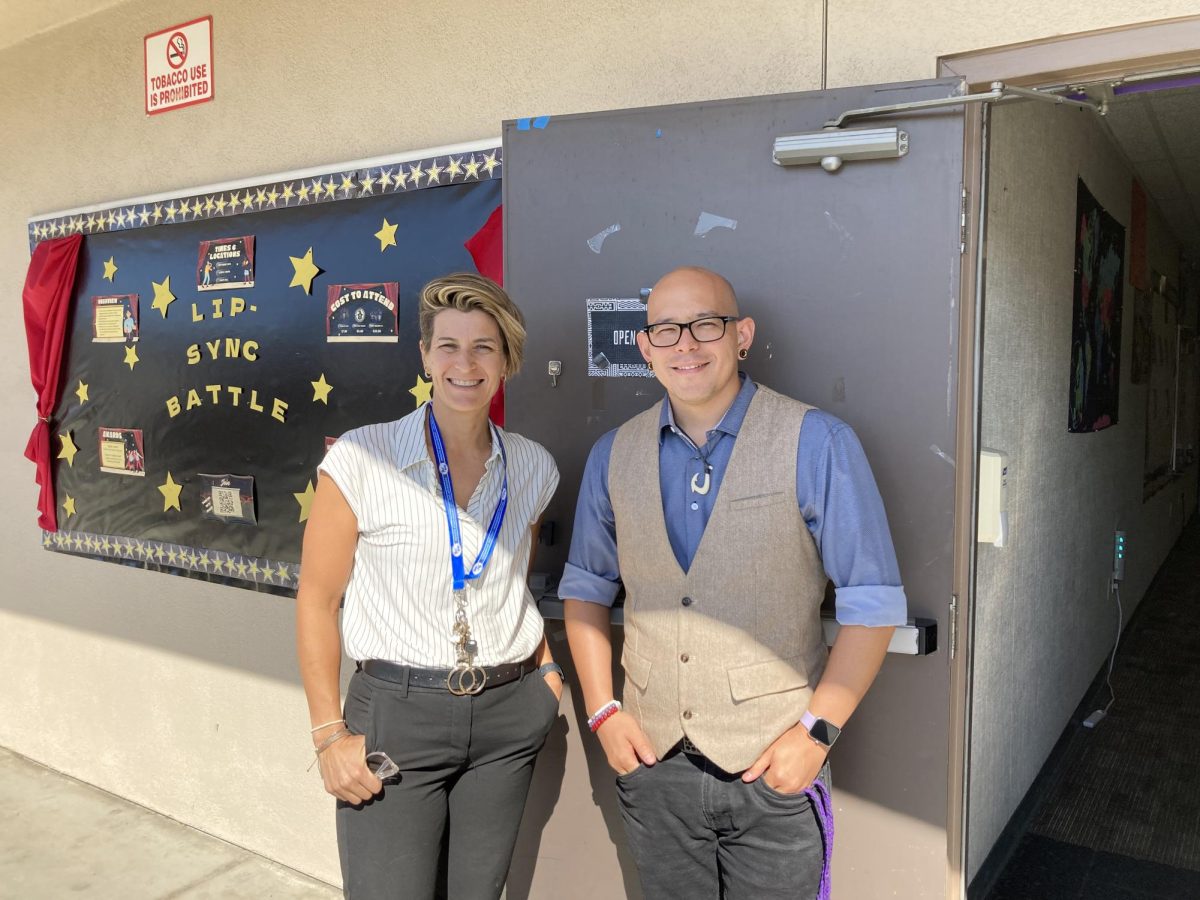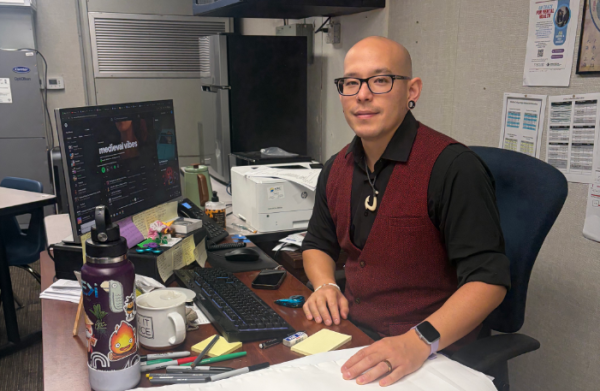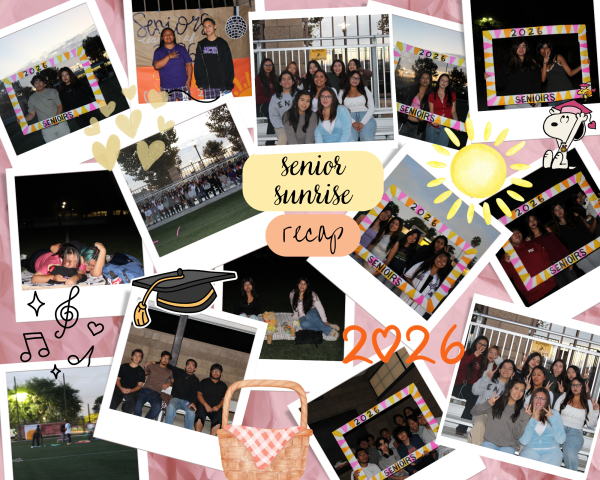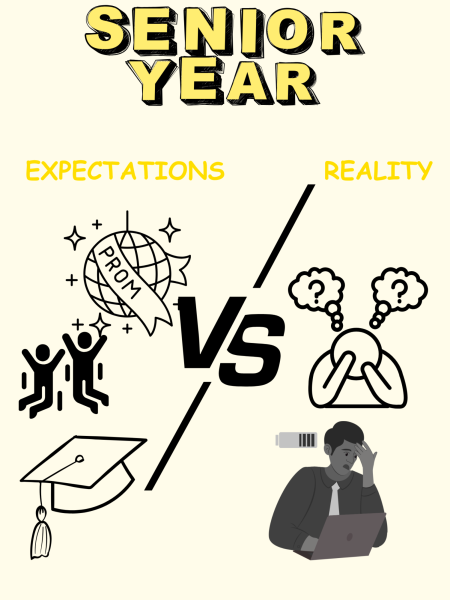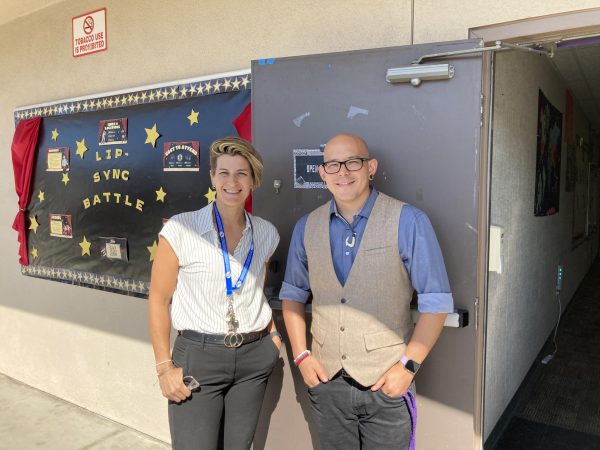College culture shock: the good, the bad, and the ugly
Jazmin Chavira (made with Canva)
Culture shock is a term used to describe some of these more pronounced reactions to spending an extended period of time in a culture different from your own.
College brings with it a plethora of experiences, possibilities, educational opportunities, and, of course, culture shock.
Every student experiences culture shock at some point during their college career, but it is most often at the start.
You may initially find your new surroundings to be bright, fascinating, and captivating. You will meet people from all walks of life, navigate your way around campus and possibly, a foreign city.
MCHS counselor and Cal State Long Beach and University of La Verne alum, Janet Montes said, “College is going to be a lot bigger than any high school you go to the campus and the type of students is very different. You meet all different kinds of people. Sometimes that is exciting, but it can be a scary thing at first.”
You may be satisfied with your decision to attend college and begin this chapter in your life. However, culture shock can hit hard when you are just starting to settle into your routine and become extremely comfortable with where you are.
Social worker and MCHS alum, Karla Mustafa, shared her experiences in a new environment at California State University, Chico.
“Even though Chico was in California, it was the total opposite of Santa Ana. Not only was there a small percentage of people of color but the comfort of Santa Ana was not there. I had to make sure I felt included as an ‘outsider,’” she said.
Culture shock is a term used to describe some of these more pronounced reactions to spending an extended period of time in a culture different from your own. Many students who grew up in homogeneous communities, such as Santa Ana’s Hispanic-dominated culture, attend college and feel isolated from other groups.
Most universities are made up of predominantly white and Asian students, which makes it a challenge to find someone just like us. First-generation Hispanic students going to college are not represented enough in the student body that it becomes difficult to find ourselves in the new environment.
Tiktok user, @.david.cortez, describes his experience as a first-generation student in a comment section of a video.
He said, “When you’re first-gen and the only people who speak your language are those who clean after us, it is heartbreaking.”
It is important to remember that each student adjusts to college life at their own pace. Some students may find that the adjustment comes fairly easily so much so that they are oblivious to it. Other students find the process difficult, slow, and even painful at times.
Regardless of how long it takes, the stages of cultural adjustments are similar for everyone.
It can be frightening to move to a new city, meet new people, and learn new social norms all on your own. It will take some time to adjust and become accustomed to your new surroundings.
“The hardest adjustment was dealing with the actual culture shock. There was no tamale lady on the weekends, a raspado guy on the weekdays, no easy access to Mexican street tacos. My chocolate abuelita and conchas became a treat when I visited home. I made the best of my situation, tried new things, and kept an open mind. It made me appreciate my home more,” said Mustafa.
This new feeling can put students in a difficult position since they are not sure where to look for comfort and guidance.
According to a 2010 study by Career College Central, first-generation students tend to slip through the cracks at large institutions because they don’t have social support or simply the knowledge of how a university may operate. They are much less likely to contest a professor’s grade or reach out for help when it’s necessary.
MCHS counselor and alum, Arlene Quinonez, gives us an insight into what it is like to be a first-generation college student at California State University, Fullerton.
“For me being first-generation, it was hard for me to know what resources were there for me. I was the first to go through college experience in my whole family. I didn’t really know what to expect. I went on campus. I remember thinking like this is huge compared to Middle College. We’re so tight-knit and small. So that was a big shock,” said Quinonez.
There is no avoiding college culture shock.
Staying involved on campus and being connected to others can ultimately help quite a bit when initially came into contact with culture shock.
“Getting involved and seeking the help or guidance you need is very helpful. You get to see that there are many people in the same spot as you. I even joined a sorority which is something I never saw myself doing. Don’t be afraid of putting yourself out there,” said Montes.
Learn to embrace culture shock when it occurs because it gives you the opportunity to learn about another culture. In this way, first-generation students can gain a new perspective, a new friend, and a new lesson to add to their repertoire.
Ultimately, culture shock can be beneficial. It broadens your knowledge, broadens your horizons, and introduces you to something new. It makes you a more well-rounded individual, which you can use to your advantage in a variety of situations.
Find the light in culture shock and instead of looking at it as an adverse scenario, use it to learn more about the world, about yourself, and try to make the best of it.
Mustafa said, “It can definitely be daunting but it is an opportunity to learn more about yourself and others. It’s also a way to represent yourself and others. It is a way to represent our community and pave the way for other first generation students.”

I love my 12-year-old perrito, I have double-jointed arms, and I met Jamie Camil aka Rogelio De La Vega ;)

